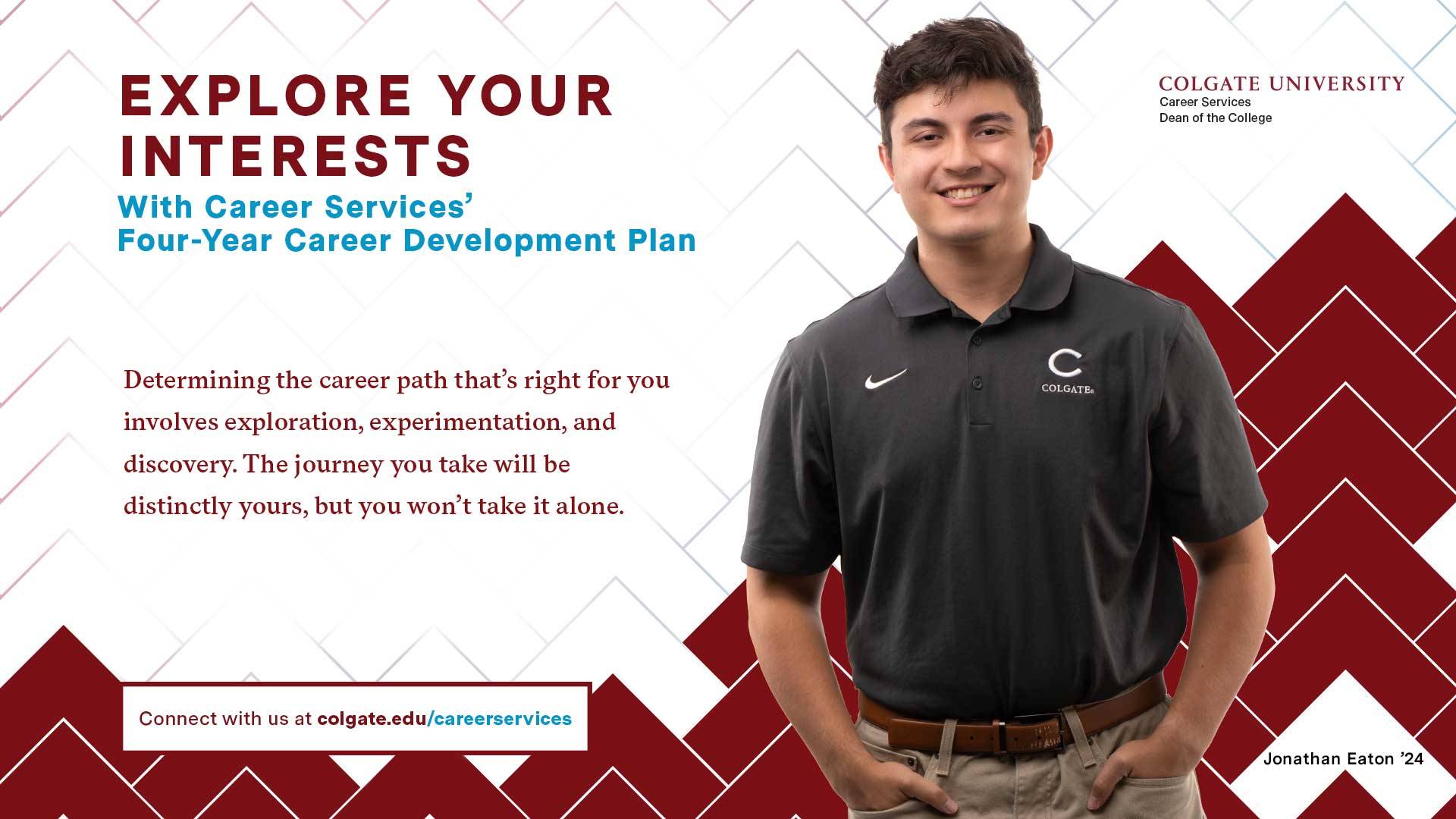In an effort to create a more cohesive, inclusive, and transparent career development process, and respond to a changing global economy, Colgate University’s Career Services has launched a four-year program to engage every student at the University in self-assessment, career exploration, and skill development.
These elements augment the robust advising, programmatic, and alumni- and employer-engagement initiatives Career Services has in place. At the same time, the team is building additional experiential learning moments, networking opportunities, and recruiting pathways for students.
Thus, the four-year development program equips students to make the most of a strong liberal arts education to meet the demands of today’s job market. It also creates a community of support for underrepresented students — including those who identify as students of color, LGBTQ, first-generation, or international students — in particular.
“Not every student arrives at Colgate with the same level of access to internships, networks of contacts, or opportunities to develop their professional skills,” AVP for Career Initiatives Teresa Olsen says. The four-year program is designed to “provide all students with an understanding of and access to these key high-impact career development practices, while assisting students in leveraging our resources under the guidance of our experienced staff.”
Eight career development areas will be addressed during the course of a student’s four-year journey: the ability to tell one’s story; exploration and career discernment; composing application materials; networking; action planning; interviewing; offer analysis; and preparing for post-collegiate life. Career Services will also employ a strengths-based approach when it comes to career coaching, empowering students to confidently tell their unique stories while in the internship or job market or during the graduate school application process.
Associate Director of Career Development David Loveless has found that, through developing their personal narratives, students have a deeper understanding of the opportunities that await post-graduation.
“Our students have always been extremely active, engaged, and accomplished, but they have not always been able to communicate why it has mattered and how those experiences or skills will transfer to new audiences,” Loveless says. “Much of the foundation of the four-year program focuses on individuals and who they are as people. Once students have an awareness of that, their stories will play out throughout the rest of the development process.”
Olsen adds that the storytelling component of the program is critical for students’ future career success. “Colgate’s liberal arts students have enormous value to offer,” she says. “Capturing the power of how their academics, identity, and experiences have prepared them to succeed professionally allows students to overcome inexperience or the effects of imposter syndrome.”
Career Services’ program challenges students to recognize how the critical-thinking skills they’re developing in the classroom will be foundational to tackling the professional challenges they will encounter in their lives.
A comprehensive four-year approach to career development is strategic and necessary in today’s job market. “Employers and graduate school programs are looking for students with more skills, focus, and overall polish,” Loveless says. “If we engage with students early, we provide a longer runway for them to amass meaningful experiences and develop skills that are valued by future employers and graduate programs.”
Caleb Levy ’23 is currently studying physics and mathematics and hopes to pursue a PhD in theoretical physics after graduating from Colgate. He has appreciated working with Career Services during the first half of his undergraduate career.
“I feel the biggest benefit for me is just having access to information and resources that have enabled me to think ahead about possible career paths and the necessary steps to take,” Levy says. “Doing this from the start had the added benefit of gaining research and internship experiences very early in my college career.”
— Sarah Lyon
